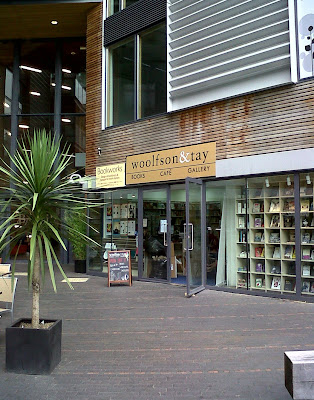Great to see a new blog,
Kidbrooke Kite, giving due coverage to that corner of South East London.
As a little welcome present, here's a very topical tale. In 1953, London County Council announced that a new school in
Kidbrooke would be London's first comprehensive school:
'Mr J. Brown, education officer of the London County Council, said tonight that the council felt that as people had to live and work together in a community there was no reason why they should not be brought up in a school community. He was addressing a meeting of parents at
Eltham, S.E., at which he explained the council's proposal to merge six south-east London schools, including
Eltham Hill girls' grammar school, into
Kidbrooke Comprehensive School, for 2,000 people.
The new school, which would be the first of its kind in London, would be completed in 18 months time. The staff would be drawn from the existing schools and would number 100. Mr Brown admitted that the principal would not know her pupils as intimately as did head mistresses of smaller schools, but each teacher would be expected to get to know 30 girls well and to follow their scholastic careers closely. The comprehensive school would cost £75,000. Every consideration would be given to meetings girls' educational requirements for whatever occupation they wished to take up' (Times, 3 March 1953).
The following year, the Conservative Minster of Education over-ruled the
LCC, agreeing for
Kidbrooke to go ahead but stopping the closure of
Eltham Hill grammar school(March 3 1954). This was a very contentious issue - there had been a petition against the closure of
Eltham, but other schools felt that allowing
Eltham to opt out
threatened the viability of the new school: 'The staff and head mistress of Charlton Secondary School for Girls yesterday sent a telegram to the Minster of Education stating that they deplored her decision to "interfere" with the plans of the
LCC to set up a comprehensive at
Kidbrooke and protested at the exclusion of
Eltham Hill Secondary School from the scheme' (March 4 1954).
The matter was discussed in Parliament, with
Herbert Morrison (Labour MP for
Lewisham South) accusing the Minister of party political bias, asking 'Did she or did she not encourage the London Conservative Party organization to involve themselves in this matter and give them some impression that she would support their efforts to oppose it?' (Times, 14 May 1954).
The Bus StrikeThe school did open in September 1954, but transport arrangements for it prompted a bus workers' strike. Drivers at the New cross garage walk out against the introduction of a new schedule for the route 70 bus, brought in by London Transport 'to cope with additional traffic caused by children going to the new comprehensive school at
Kidbrooke' (Times, 15 Sept 1954).
The strike affected buses across South East London: ''Six hundred drivers and conductors at the New Cross garage of London Transport, who began an unofficial strike on Wednesday, voted last night to continue the stoppage which now affects nine routes.' The Transport and General Workers Union called 'a delegate conference of busmen from every London garage' to discuss the dispute (17 Sept 1954).
After three days on strike, the bus workers decided in a meeting in
Deptford to return to work - management
agreed to 're-examine the complaints of the bus crews' (Times 18 September 1954).
By 1959, when a delegation of Japanese women trade unionists visited the UK,
Kidbrooke Comprehensive School was sufficiently established to be included in their 'tour of British institutions' (Times, January 16 1959).
The history of post-Second World War education could be written through the lens of
Kidbrooke school. Its early years show that the comprehensive experiment was undermined from the start in areas like South East London where grammar schools were
allowed to continue to exist on the outer edges. Furthermore the actual implementation of comprehensive schools embodied two potentially contradictory impulses - on the one hand a socialist desire for a classless quality education, on the other hand an economic imperative to create larger institutions so that the new system did not extend the level of resources, staffing and support offered by the older grammar schools to the masses, but instead created huge, impersonal education factories.
As Michael
Gove and co. set about trying to dismantle comprehensive education the question is not whether it has 'failed', but whether it has really ever been tried.


 As did St Hilda, or to be more precise the banner of St Hilda & St Cyprian's Church in Crofton Park:
As did St Hilda, or to be more precise the banner of St Hilda & St Cyprian's Church in Crofton Park:
 Blackheath and Crofton Park banners outside the Town Hall:
Blackheath and Crofton Park banners outside the Town Hall:




































